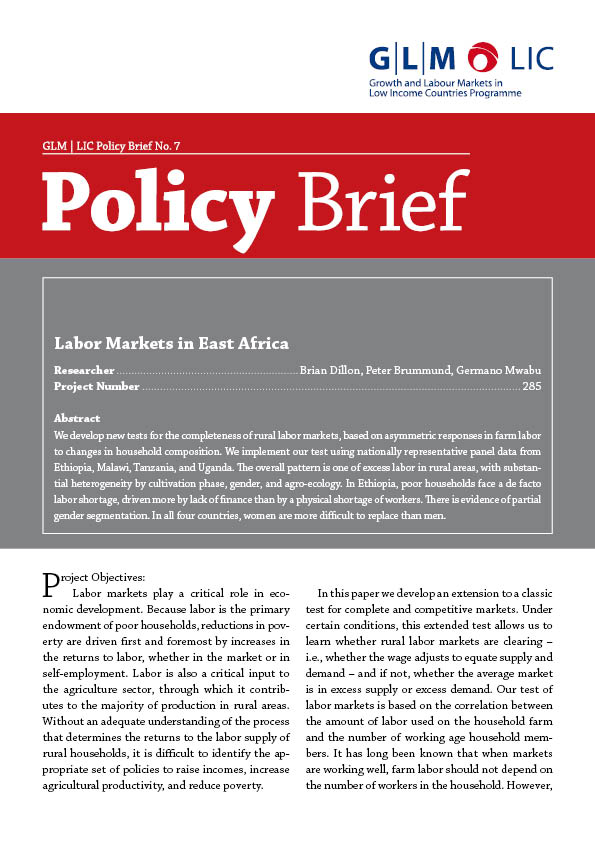We develop new tests for the completeness of rural labor markets, based on asymmetric responses in farm labor to changes in household composition. We implement our test using nationally representative panel data from Ethiopia, Malawi, Tanzania, and Uganda. The overall pattern is one of excess labor in rural areas, with substantial heterogeneity by cultivation phase, gender, and agro-ecology. In Ethiopia, poor households face a de facto labor shortage, driven more by lack of finance than by a physical shortage of workers. There is evidence of partial gender segmentation. In all four countries, women are more difficult to replace than men.
